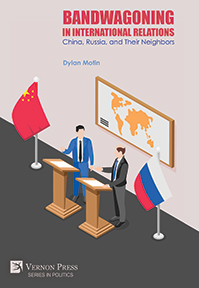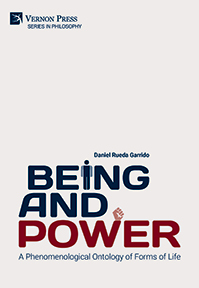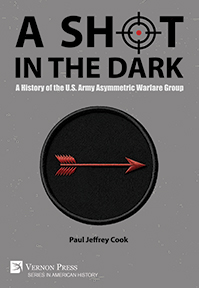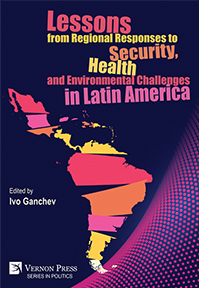Search
Browse
by Publication status
by Subject
Anthropology (26) Art (171) Business and Finance (38) Cognitive Science and Psychology (63) Communication and Journalism (51) Economics (116) Education (71) History (169) Human Geography (23) Interdisciplinary (43) Language and Linguistics (178) Law (16) Music Studies (18) Philosophy (222) Political Science and International Relations (127) Sociology (404) Statistics and Quantitative Methods (21)by Series
Series in Literary Studies (62) Series in Philosophy (57) Series in Education (49) Series in Sociology (42) Series in World History (31) Series in Politics (30) Bridging Languages and Scholarship (26) Series in Language and Linguistics (25) Cognitive Science and Psychology (20) Series in Philosophy of Religion (20) Series in American History (19) Series in Art (19) Critical Perspectives on Social Science (16) Series in Cinema and Culture (16) Curating and Interpreting Culture (15) Series on the History of Art (14) Series in Anthropology (13) Series in Critical Media Studies (13) Economics (13) Series in Business and Finance (12) Series in Music (12) Series in Performing Arts (9) Philosophy of Personalism (8) Series in Communication (8) Series in Law (8) Series in Economic Methodology (7) Series on Climate Change and Society (7) Classics in Economics (6) Series in Economic Development (6) Women's Studies (6) Philosophy of Forgiveness (5) Series in Built Environment (5) Series in Economic History (5) Series in Philosophy of Science (4) Series in Social Equality and Justice (4) Series on the History of Science (4) Serie en Sociología (3) Series in Contemporary History (3) Series in Creative Writing Studies (3) Series in Design (3) The Interdisciplinary Built Environment (3) Series in Heritage Studies (2) Series in Innovation Studies (2) Serie en Ciencias Políticas (1) Serie en Comunicación y Medios (1) Serie en Entorno Construido (1) Serie en Estudios Culturales (1) Serie En Estudios Literarios (1) Serie en Filosofía (1) Serie en Música (1) Series in Classical Studies (1) Series in Economics of Technological Change (1) Series in Philosophy of Race (1) Series in Urban Studies (1)by Language
English Spanishby Author
Browsing with filters

Bandwagoning in International Relations: China, Russia, and Their Neighbors
Dylan Motin, Kangwon National University, Korea
Availability: In stock
186pp. ¦ $57 £45 €53
Whether states balance against or bandwagon with threatening great powers remains an unsolved problem for international relations theory. One school argues that military power compels minor powers to accommodate threats, while another defends that it elicits balancing instead. With the emergence of potential hegemons in both Asia and Europe — namely China and Russia — understanding state alignment is more urgent than ever. This book shows that bandwagoning has been a rare choice in contemporary Asia and Europe. The only states that chose bandwagoning with China or Russia faced both conflicts with third rivals and low levels of U.S. assistance. Going further, I divide bandwagoning between full alignment, survival accommodation, and profit accommodation. Bandwagoners choose among these three options based on the severity of the threat posed by the potential hegemon, the intensity of third conflicts, and the level of U.S. assistance. I test this novel theory against three European (Armenia, Belarus, and Serbia) and four Asian (Cambodia, Myanmar, North Korea, and Pakistan) cases. This study is the first to provide an exhaustive and compelling explanation of bandwagoning fully compatible with neorealism and adds to the balancing-bandwagoning debate. Beyond scholarly implications, this research’s findings offer advice for policymakers concerned with the changing balance of power in Asia and Europe and how to counter China and Russia’s influence.
Being and Power. A Phenomenological Ontology of Forms of Life
January 2024 / ISBN: 978-1-64889-817-4Availability: In stock
146pp. ¦ $55 £44 €51
Why do we act as we do? Why do we assume that the way of being and behaving in our community is right, good, and common sense? Why do we fail to understand those who are, act, and feel differently? These are some of the questions that this book raises and attempts to answer. This ontology is rooted in the phenomenological tradition but with the innovation of taking the "form of life" as the central ontological unit. We are our form of life, but, as a transcendental-immanent reality, this is not directly equivalent to culture or society; it is rather the "political" realisation in the world of an image of the human being shared by a given community. This overcomes the traditional dualities of individual and society, consciousness and body, facticity and freedom, actuality and possibility. The subject is a subject because it identifies with that image, which is equivalent to the intersubjective consciousness of how one should act and be in the world. This gives rise to multiple forms of life. The latter implies a certain power to be who one wants to be. In this way, the book is an invitation to self-examination, for if our form of life is voluntary (i.e., capitalism), it shatters the illusion that one cannot live in any other way, and places us before the anguished but inevitable task of justifying its adoption or resorting to its abandonment. The book offers a dynamic analysis of human existence as the actualisation of a form of life that is, at the same time, the exercise of a certain power over those who seek to live otherwise, especially when that form is institutionalised by a government as the essence of the national or transnational community.
A Shot in the Dark: A History of the U.S. Army Asymmetric Warfare Group
Paul Jeffrey Cook, Temple University
Availability: In stock
358pp. ¦ $81 £65 €76
This book presents the U.S. Army Asymmetric Warfare Group (AWG) as an example of successful change by the Army in wartime. It argues that creating the AWG required senior leaders to create a vision differing from the Army’s self-conceptualization, change bureaucratic processes to turn the vision into an actual unit, and then place the new unit in the hands of uniquely qualified leaders to build and sustain it. In doing this, it considers the forces influencing change within the Army and argues the two most significant are its self-conceptualization and institutional bureaucracy. The work explores three major subject areas that provide historical context. The first is the Army’s institutional history from the early 1950s through 2001. This period begins with the Army seeking to validate its place in America’s national security strategy and ends with the Army trying to chart a path into the post-Cold War future. The Army’s history is largely one of asymmetric warfare. The work thus examines several campaigns that offered lessons for subsequent wars. Some lessons the Army took to heart, others it ignored. As the AWG was a direct outgrowth of the failures and frustrations the Army experienced in Afghanistan and Iraq, the book examines these campaigns and identifies the specific problems that led senior Army leaders to create the AWG. Finally, the work chronicles the AWG’s creation in 2006, growth, and re-assignment from the Army staff to a fully-fledged organization subordinate to the U.S. Army Training and Doctrine Command in 2011 to its deactivation. This action resulted not from the unit’s failure to adapt to a post-insurgency Army focusing on modernization. Rather, it resulted from the Army failing to realize that while the AWG was a product of counterinsurgency, it provided the capability to support the Army during a period of great strategic and institutional uncertainty.
Thomas Jefferson and Maria Cosway: A Gordian Love Affair
Complete Correspondence with Critical Commentary
January 2024 / ISBN: 978-1-64889-815-0Availability: In stock
156pp. ¦ $56 £45 €53
This is the only book to offer the complete correspondence between Thomas Jefferson and Maria Cosway, a talented artist for whom Jefferson fell while in France. There is agreement in the secondary literature that Jefferson’s affection for Hemings was reciprocated. This book shows that that cannot be believed. Holowchak also shows that Hemings, through letters late in life, much longs for Jefferson’s company, suggestive of regret for not having earlier in life reciprocated Jefferson’s feelings—hence, the importance of a book with the complete correspondence. Holowchak also offers in the introduction a short psychobiography of Cosway that shows the significance of key early-life events—e.g., her childhood in a tavern, her removal to a convent, her introduction to art, and two singular dreams. Cosway would ever be tugged antipodally by the lure of earthy living as well as the asceticism of Catholic piety.
Lessons from Regional Responses to Security, Health and Environmental Challenges in Latin America
Edited by
Ivo Ganchev, Founder of the Centre for Regional Integration, UK
Availability: In stock
358pp. ¦ $95 £80 €88
What is the role of regional organizations in maintaining security across different parts of Latin America and the Caribbean (LAC)? How did COVID-19 impact states in the region and what types of collective action have helped respond to public health emergencies? In what way is LAC environmental policy formulated and what broader lessons can be drawn for the Global South? This edited volume addresses these questions, revealing the reasons behind the successes and failures of LAC regional responses to collective challenges as well as their limitations and potential for future improvement. It contains 11 chapters, authored by 16 authoritative academics who employ methodologically-diverse perspectives. Each chapter provides insights that would be of interest to scholars, students and policy-makers working on the regional governance of LAC and the Global South. The contributions are thematically organised in three parts and produced with pragmatic considerations in mind, discussing existing and potential real solutions to pressing issues.






